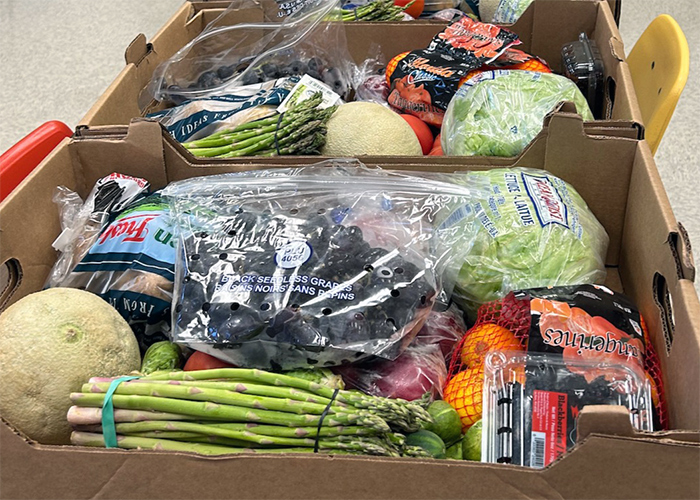Many Kansas families live near agricultural fields, but those areas are also likely part of areas officially designated food deserts — geographic areas where residents lack access to affordable, healthy foods, especially fresh fruits and vegetables, because they don't live within 10 miles of a large food retailer. This is true in many low-income urban areas, but as an agricultural state, food deserts are also a major issue in rural and remote areas of Kansas.
Many Kansas farms grow commodity crops like soybeans, wheat, and corn, limiting the variety of fresh produce like beans, carrots, and spinach available to surrounding communities. With residents’ limited access to healthy foods, chronic disease is more prevalent in these areas. Kansans who live in the “breadbasket of America” have disproportionately higher rates of diabetes, colon cancer, and heart disease, and are more likely to have poorer outcomes if they experience a health emergency because of a lifetime of eating highly processed, high-fat, high-sugar foods.
Dr. Christina Bridges, a research assistant professor in the Department of Family Medicine and Community Health at the University of Kansas Medical Center, has been interested in this issue for years. She grew up in Southern California, surrounded by a wide variety of fresh fruits and vegetables. In high school, she lived in rural Bootheel, Missouri, where fresh foods were not as abundant.
Bridges earned her PhD in Microbiology from the University of Kansas Medical Center, but she also had a strong interest in nutrition, which she took courses in graduate school. This led her to study food security and how nutrition affects the overall health of people with little access to healthy foods. Her research on bacteria and colorectal cancer in racial minorities led to further research on diet, access to healthy foods, and the causes of health disparities.
In 2017, her research resulted in a list of questions that all patients at the University of Kansas Health System are asked during their doctor's visits. “We asked patients if they were worried about food access at home,” she says. “We also surveyed patients who answered 'yes' and had underlying conditions such as prediabetes or type 2 diabetes.”
Supported by a grant from the W.K. Kellogg Foundation, researchers reached out to patients in Wyandotte County to provide food boxes, connect them with community resources, and continue to learn about the conditions that limit food access. Just as that pilot program was getting underway, COVID-19 hit, and the project shifted to purchasing fresh food and delivering food boxes to people who couldn't get out to shop.
“We learned a lot from the data we collected,” Bridges said. “It was evidence that it's important for our communities to have these systems in place so that if an emergency or catastrophe occurs, we know how to respond and help those who are most vulnerable.”
New grant funds research into food deserts in Kansas
In 2022, Bridges' previous work caught the eye of the Aspen Institute, a national nonprofit that works to build stronger communities, and now the institute is funding new projects in six areas of western and southeastern Kansas that qualify as food deserts, including Wichita, Lawrence and Topeka, which meet federal requirements.
The goal is to learn how to overcome barriers to healthy food. “The grant money will go towards the cost of the food, but it will also help provide funding to health care workers, help food insecure people access existing resources and work with stakeholders to find better solutions,” Bridges said.
Ideas that have emerged from the project include cooking classes and partnering with local restaurants to provide pre-prepared meals. There is also the idea of providing frozen fruits and vegetables, but transportation and storage issues have limited this plan. Each of the six communities will meet and share ideas as new challenges and innovative solutions emerge.
Bridges said the study will track three key outcomes — HbA1C levels, blood glucose levels and weight — for at least three months with the aim of bringing about a change in the diabetes epidemic in rural parts of the country.
“Ultimately, we want to sell these ideas to payers like Medicare, Medicaid and other insurance companies,” Bridges says, “by showing that reimbursing food transportation costs is cheaper than paying for long-term medical care.”



